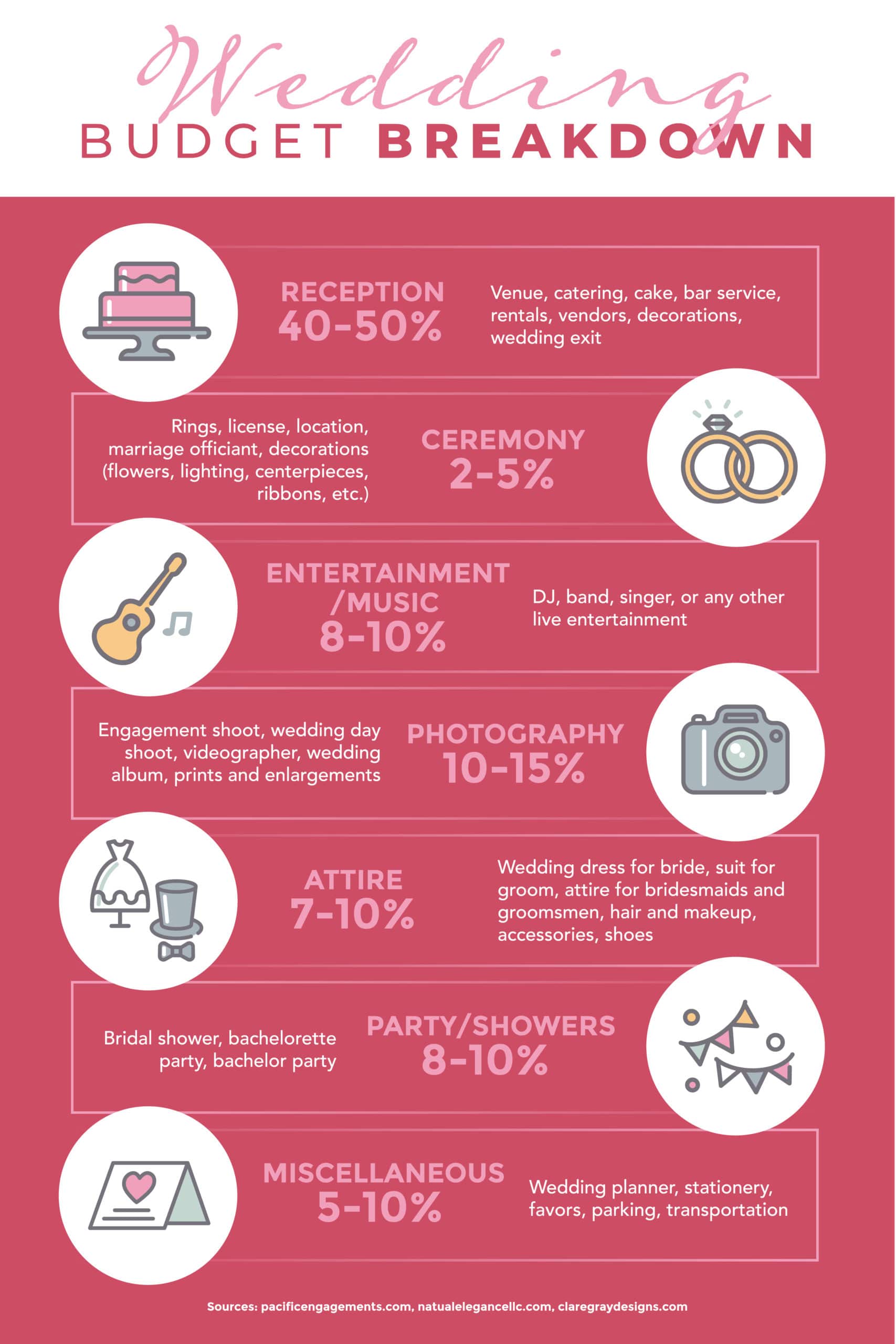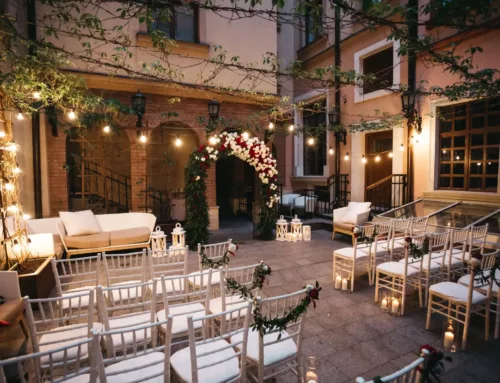As fun and magical as weddings are, we know they can burn a hole through your pocket. Between finding the best venue, vendors, outfits, decorations and more, your special day may very quickly prove to be your most expensive day. However, this isn’t always the case, especially when you set a solid budget and stick to it. It can be hard to know where to start with planning and setting a budget, so today we’re sharing five tips for how to create a wedding budget and a helpful infographic to help you break down your budget.
1. Explore Your Comfort Zone Together
Talk with your partner about what they are comfortable with spending for your wedding day. Discuss ideas that the two of you had in mind and the must-haves you’ve been dreaming of (and pull out those Pinterest boards!). This is a great way to see what your top priorities are together as a couple, as well as things you may be willing to compromise on for the sake of keeping a budget. Start looking at all of your options and collect estimates for how much each of those options will cost. It may also be useful to decide who is paying for what and to even have a professional in charge of monitoring your budget so that no one goes over it.
2. Categorize Your Must-Haves
Once you know what you want to have at your wedding, it’s time to decide how much of your budget should be allocated to it. We’ve found a handful of different sources offering ideas for percentages to use to break up your budget, but at the end of the day, we believe you should arrange your spending on what’s most important to you. Typically, the reception takes up most of the budget between factors like the venue and a wedding exit, but you may find that photography or the ceremony is more important to you and your partner. Regardless of what you will be including in your wedding, it’s helpful to organize your budget in categories such as reception, ceremony, music/entertainment, photography, and so on.
3. Communicate With Those Involved
Planning a wedding is no easy feat, especially when you’re doing it all alone. If you’re working with a wedding planner, your partner, your in-laws, or whoever else you’ve decided to include in the process, be sure to have a clear and effective way of communicating. When money is spent or allocated elsewhere, update those involved so everyone is on the right track. If you have a wedding planner or other people doing most of the work for your wedding, make sure you are still being looped in on big decisions and what is being done with your money.
4. Update As You Go
Things change, and it’s important to understand this from the start. You may have a fantastic vendor in mind or try to book a popular venue, only to find out that your option is booked far past the date of your wedding. It’s crucial to be flexible, have multiple options available, and to not put all of your eggs in one basket. As you schedule and arrange the services you will have at your wedding, keep your budget updated with what you have already spent, what you are planning to spend, due dates for payments, and any other significant details relating to your wedding finances. Staying on top of your budget in this way will not only save you headaches, but potentially a good chunk of money as well.
5. Have a Backup Plan Ready
Have a backup plan prepared in the event that you have money left in your budget or if you happen to go over your budget. In the case of having money left over, you may decide to put the money back in savings, or you may use it to splurge on an extra service not included in the original budget. If you happen to go over your budget, make a list of things you’d be comfortable with cutting from your wedding, and if it’s too late for that, brainstorm with your partner about a way to make up for the money lost. No one likes going over budget, but it’s important to have a backup plan at the ready should your must-have list prove to be too expensive.

Creating a wedding budget will rely largely on your wishes and vision as a couple. What’s important to include for others may not prove to be most important to you, and that is perfectly fine. What matters most on your wedding day is that you and your partner are happy. Setting, organizing, and following a budget will ensure that your special day will have everything you need to enjoy the most magical day of your life.





